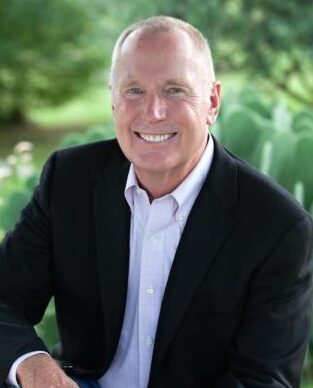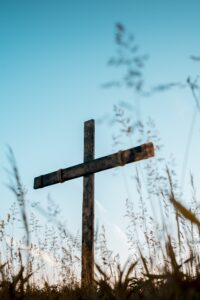A few years ago, my heart rate was misbehaving, taking the pace of a NASCAR race and the rhythm of a Morse code message. So I went to a specialist. After reviewing my tests and asking me some questions, the doctor nodded knowingly and told me to wait for him in his office.
I didn’t like being sent to the principal’s office as a kid. I don’t like being sent to the doctor’s office as a patient. About the time I leaned back in the office chair to relax, the doctor’s nurse entered and handed me a sheet of paper. “The doctor will be in shortly,” she explained. “In the meantime, he wants you to acquaint yourself with this information. It summarizes your heart condition.”
I lowered my gaze from the wall of the doctor’s many diplomas to the summary of the disorder. As I read, unwelcome words like atrial fibrillation, arrhythmia, embolic stroke, and blood clot caused me to sink into fear and worry, squandering my sense of peace. Fear and worry often have a way of creating a form of spiritual amnesia. It dulls our miracle memory. It makes us forget what Jesus has done and how good God is.
 This was the case for the disciples when five thousand men plus women and children were hungry, looking up at them with rumbling bellies (John 6:1-15). They had no more food in their sacks. They had no food trucks or stores in which to shop. Jesus turns and asks his disciples a question: “Where can we buy enough bread to feed all these people?” (v. 5) Philip, a practical sort of fellow immediately responds: “Several thousand dollars’ worth of bread wouldn’t be enough to give even a tiny bite to all these people!” (v. 7) Then Andrew chimes in with the idea to start with a boy’s lunch, but then says: “What are these loaves and fishes when there are all these people?” (v. 9)
This was the case for the disciples when five thousand men plus women and children were hungry, looking up at them with rumbling bellies (John 6:1-15). They had no more food in their sacks. They had no food trucks or stores in which to shop. Jesus turns and asks his disciples a question: “Where can we buy enough bread to feed all these people?” (v. 5) Philip, a practical sort of fellow immediately responds: “Several thousand dollars’ worth of bread wouldn’t be enough to give even a tiny bite to all these people!” (v. 7) Then Andrew chimes in with the idea to start with a boy’s lunch, but then says: “What are these loaves and fishes when there are all these people?” (v. 9)
Notice how the phrase “all these people” is said three times in this passage. Jesus acknowledged “all these people.” Philip saw no help for “all these people.” Andrew had an idea, but the suggestion wilted in the faces of “all these people.”
What is your version of “all these people”? It might be something as pedestrian as “all these diapers” or “all this homework” or “all these long days.” Or it might be as disrupting as “all this dialysis,” “all this depression,” or “all these bills.”
Whatever it is, the demand outstrips the supply, and you are left feeling as hopeless as Philip and as meager as Andrew. We’d like to think Jesus’ followers would respond with more faith. After all, they’d seen water turned into wine and a lame man walk. Shouldn’t someone mention Jesus’ track record or review his résumé? Do they remember the accomplishments of Christ? They may not.
We’d like to see more spunk from the disciples, more grit. More “We can’t, but you can, Jesus!” But they and the silent others showed no spark. They counted the hungry people, the money in their bag, and the amount of bread and fish. They did not, however, count on Christ. And he was standing right there! He could not have been nearer. They could see, hear, touch, maybe even smell him. Yet the idea of soliciting his help did not dawn on them.
It did not dawn on them because the worry-filled cannot dream wildly. They only dream of safety and sure-fire facts. Yet our miracle-working God tells us to trust and take courage.
Courage does not panic; it prays. Courage does not bemoan; it believes. Courage does not languish; it listens. It listens to the voice of God calling through Scripture, “Fear not!” Courage hears Christ’s voice comforting through the hospital corridors, graveyards, and war zones and rings out loudly, “Don’t let your hearts be troubled or afraid.” (John 14:27) God’s call to courage is not a call to naïveté or ignorance. We aren’t to be oblivious to the overwhelming challenges that life brings. We’re to counterbalance them with long looks at God’s accomplishments.
As soon as I started sinking into the mire of fear and worry in the doctor’s office, I decided to change strategies. I counteracted my diagnosis with the doctor’s many framed diplomas. In between paragraphs of bad news, I looked at the wall for reminders of good news. This doctor knows what he’s doing. I’m in good hands. The more I looked at the doctor’s accomplishments, the better I felt. And that’s what God wants us to do. God wants us to remember his accomplishments and his miracle-working presence in our lives. God has hung his diplomas in the universe. Rainbows, sunsets, horizons, and star-sequined skies. He has recorded his accomplishments in Scripture. Red Sea openings. Lions’ mouths closings. Goliath topplings. Lazarus raisings. Storm stillings and strollings. When you feel overwhelmed by the challenges of life, keep your gaze on Jesus and take courage that you are in good hands. You, my friend, are never alone.
Adapted from You Are Never Alone: Trust in the Miracle of God’s Presence and Power (Thomas Nelson, September 2020)







